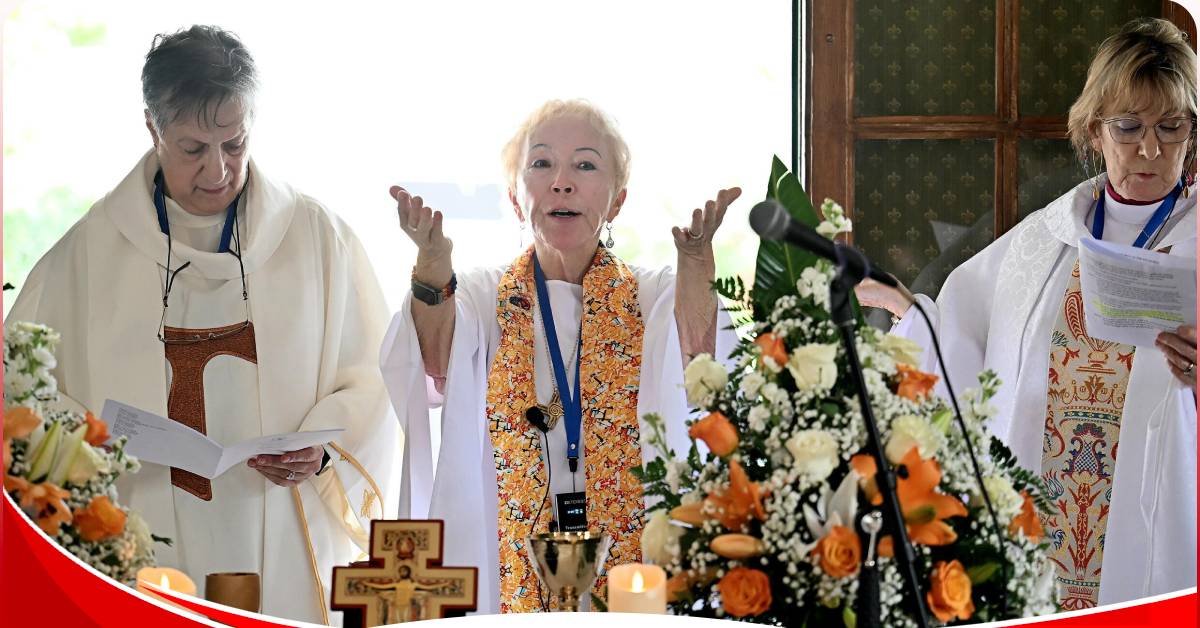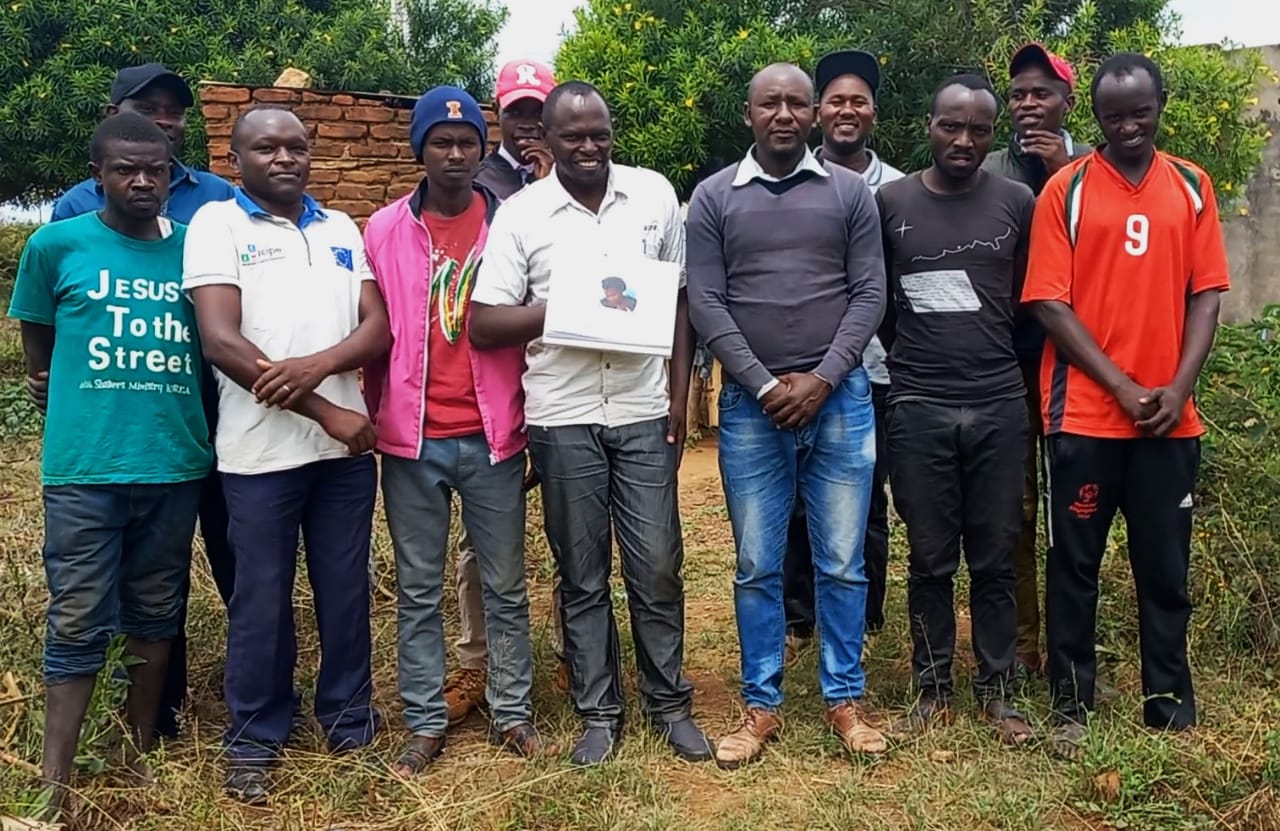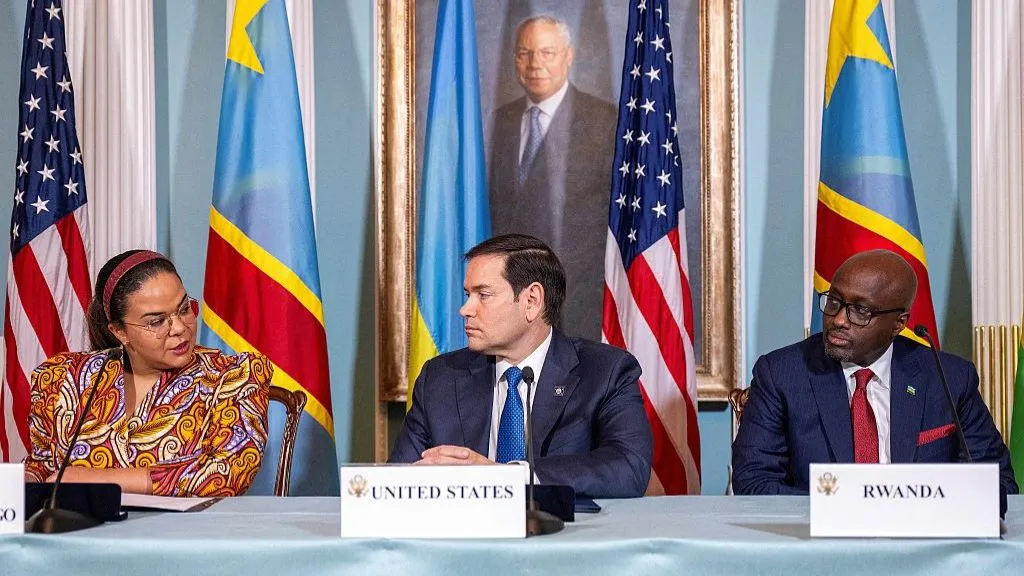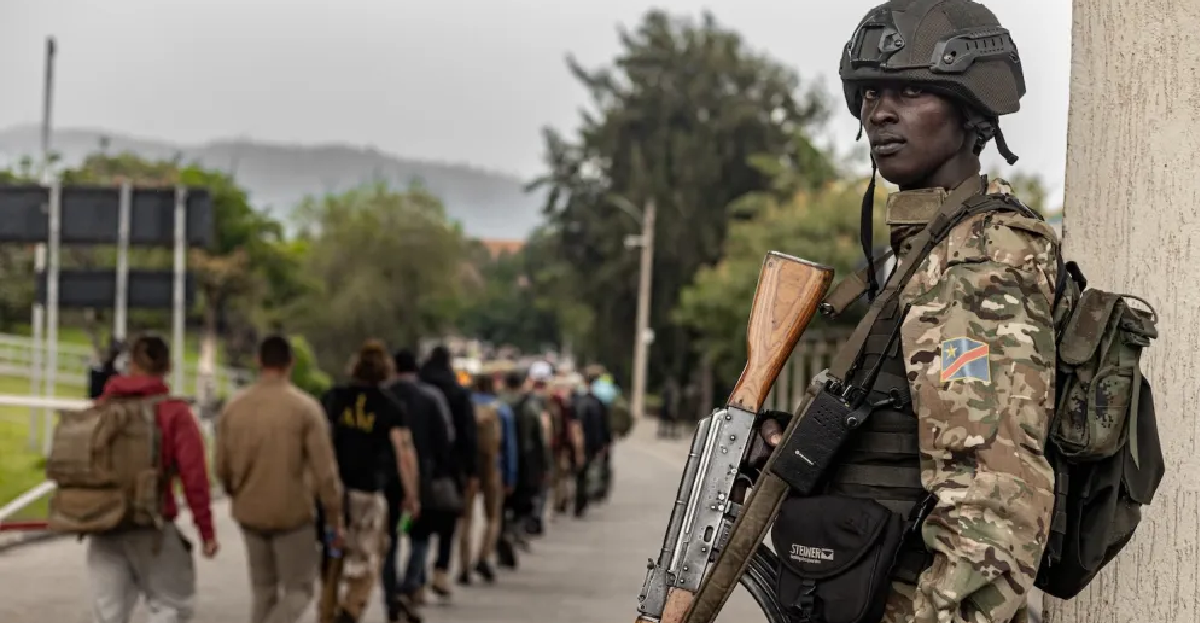In a daring act of defiance, Loan Rocher, a 68-year-old transgender woman from France, was “ordained” as a deacon.
This was in a secret ceremony on a barge floating on Rome’s River Tiber, close to the Vatican.
Rocher, dressed in a white robe with a rainbow stole, stood alongside five other candidates.
Three priests and two deacons—in a service that mirrored an official Catholic mass but remained unauthorised by the Vatican.
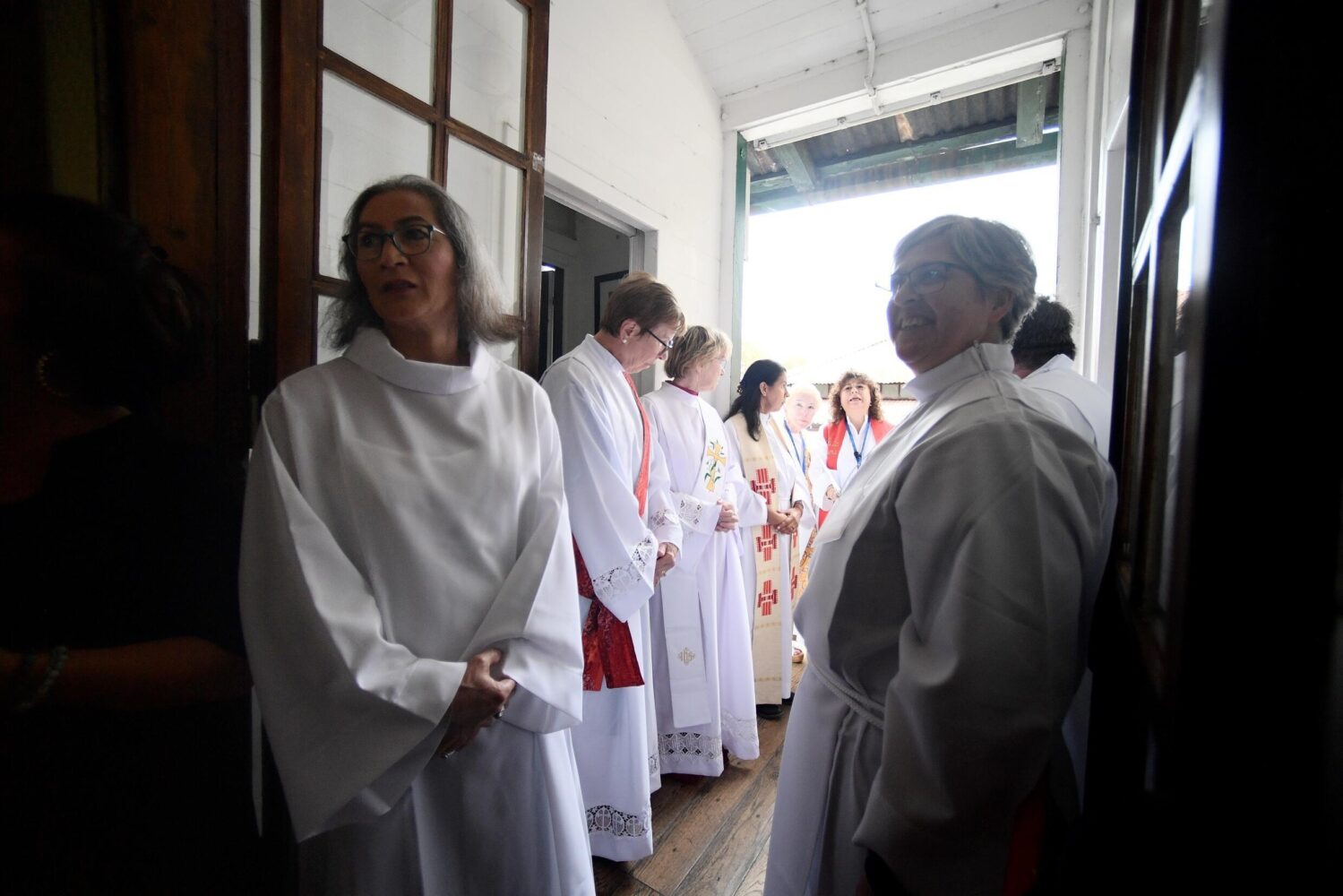
The ceremony, held in three languages and attended by about 50 supporters, challenged the Catholic Church’s longstanding ban on the ordination of women and LGBTQ+ individuals.
Despite its significance for those involved, the Church considers such ordinations illegal and subjects participants to excommunication.
Canon law mandates that all six ordinands and their supporters be excluded from the Catholic community.
Undeterred, Rocher boldly addressed the Church’s stance on women’s ordination.
“They’ve repeated the same message for 2,000 years—that women are inferior and invisible. It’s enough. We’re moving forward now,” she declared.
The event was part of a larger effort led by the US-based “bishop” Bridget Mary Meehan, a key figure in the movement for a more inclusive Church.
The group has ordained over 270 women in 14 countries since 2002. Meehan, 76, expressed hope for a more welcoming Church.
“We’ve worked hard to create an inclusive space where LGBTQ+, divorced, and remarried individuals—all are welcome,” she said.
Held on the upper deck of the barge, the ceremony saw the congregation laying hands on the new priests and deacons in a blessing that symbolized their commitment to serving the people of God.
While the ordination stands in stark opposition to the Church’s teachings, it represents a growing movement within Catholicism.
Efforts to include women in leadership roles within the Church have long faced resistance. Activists hoped the ongoing Synod on the future of the Church would consider admitting women as deacons.
However, Pope Francis ruled out that possibility, disappointing many feminists who see this as a missed opportunity for reform.
Despite the resistance, those involved in the ceremony remain hopeful. “The hierarchy is afraid, but the people are not,” Meehan said, adding, “And they love women priests.”


